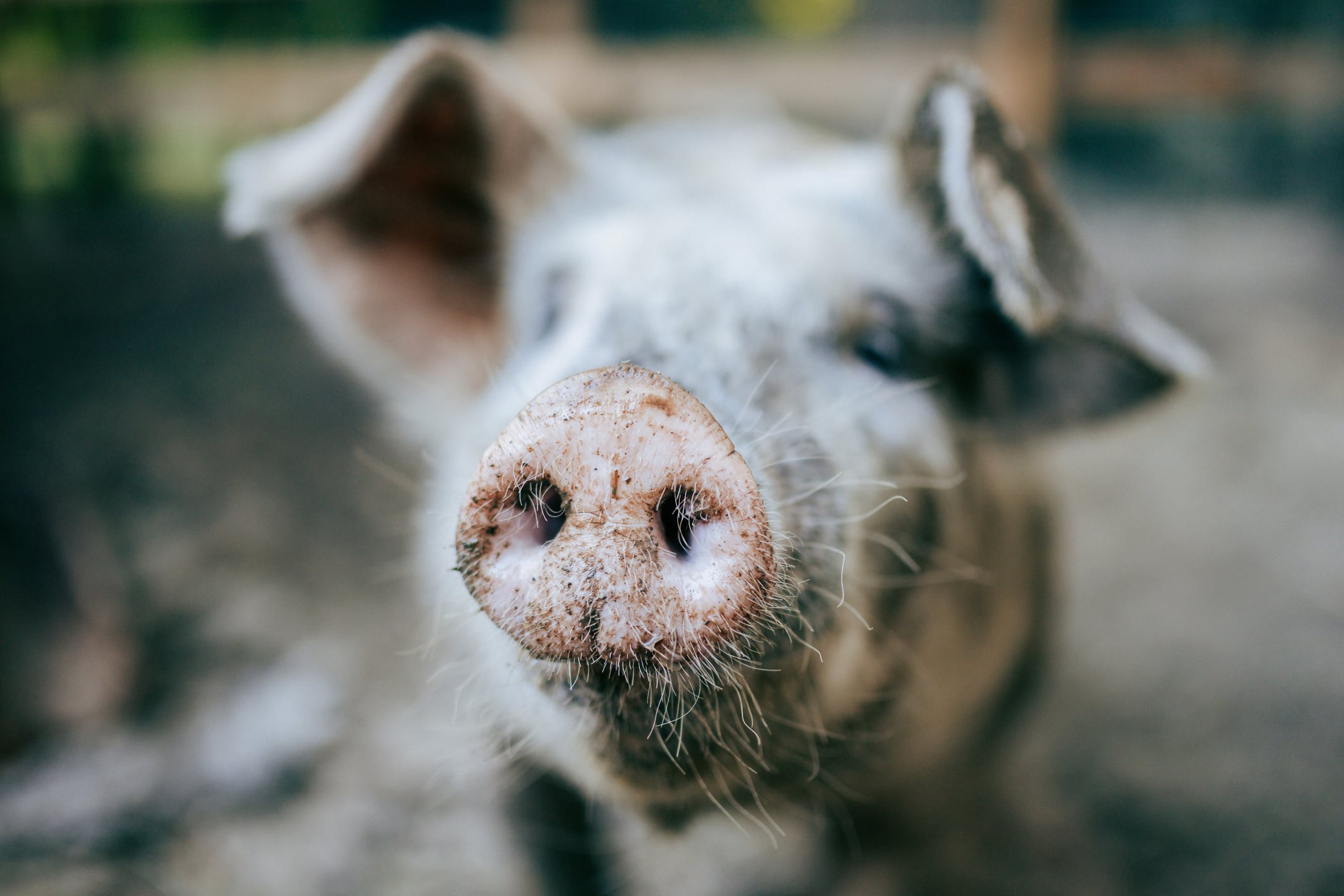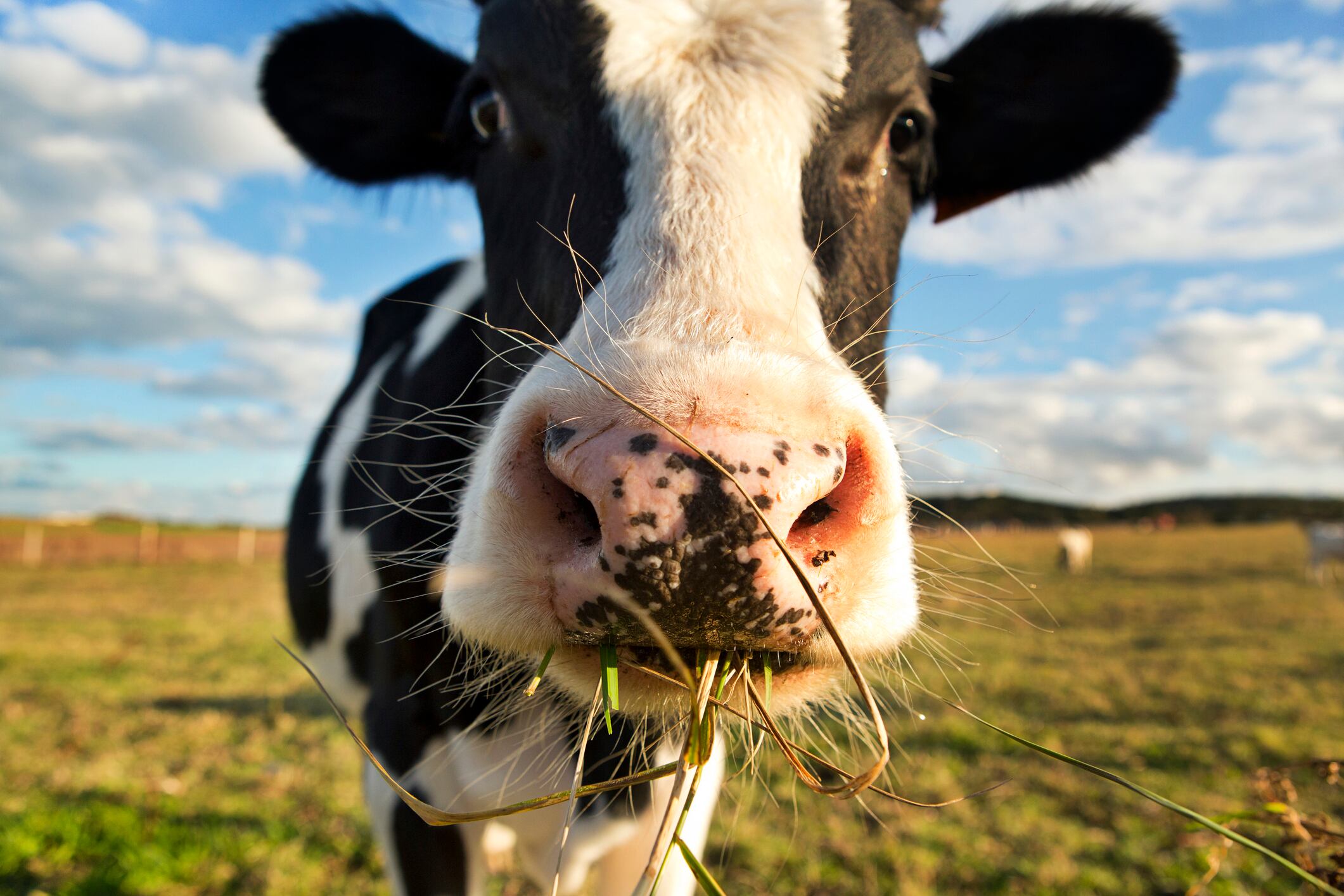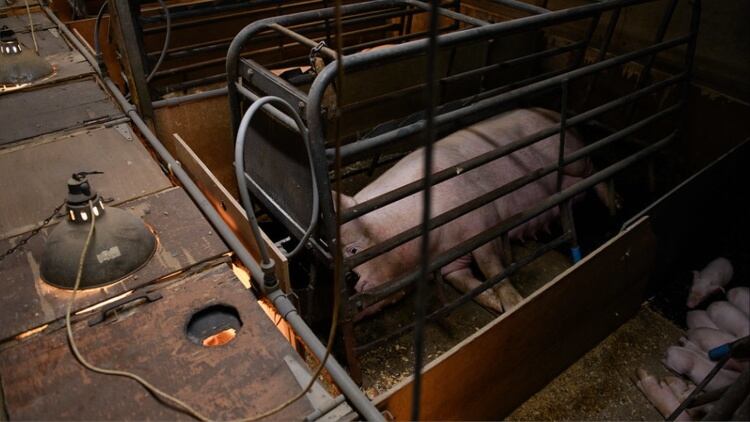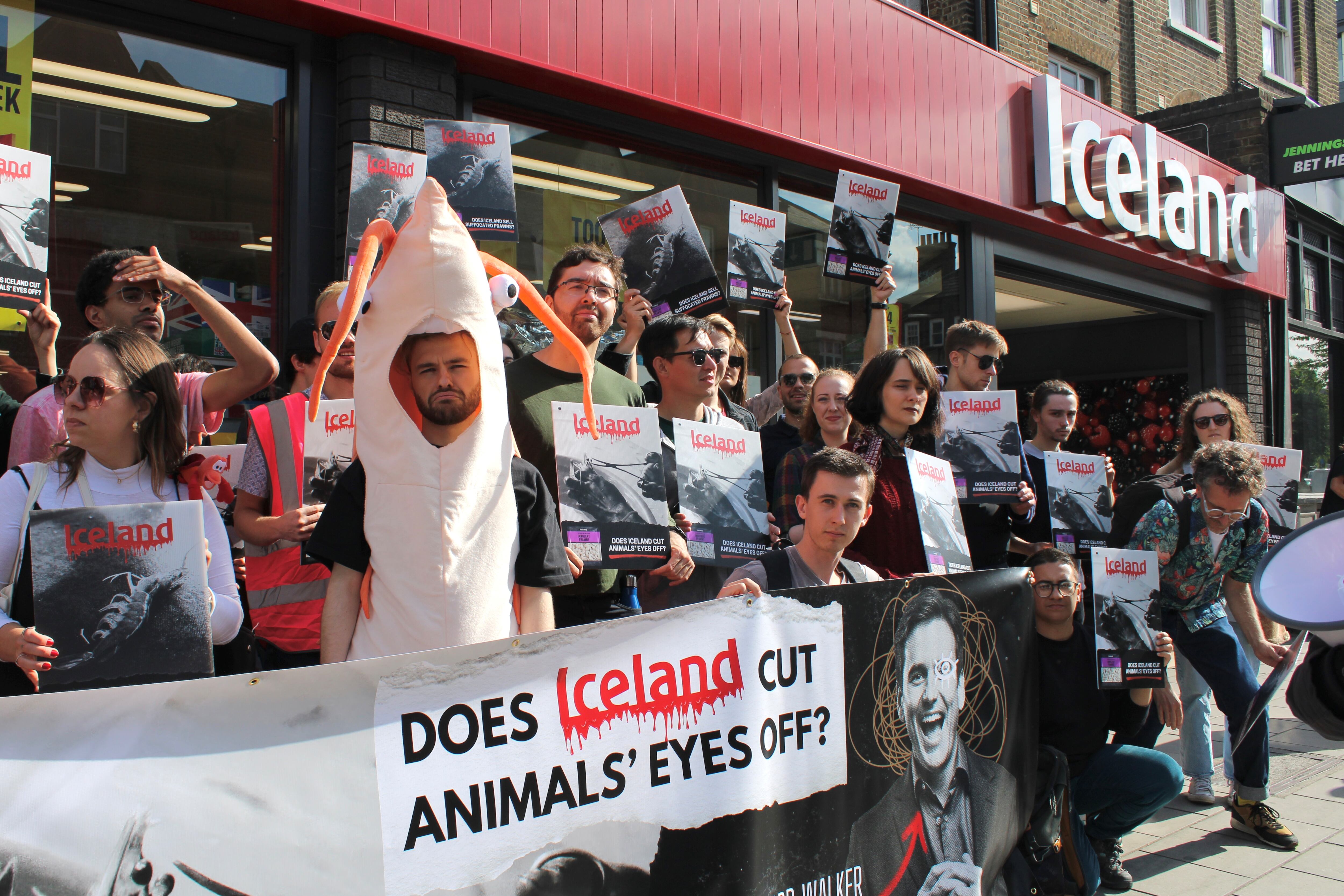The footage was captured at Northmoor Farm in Lincolnshire over a several week period last year by an undercover investigator for charity organisation, Animal Justice Project.
It showed piglets being swung by their legs and slammed against concrete by people working at the farm, alongside footage of piglets being kicked, kneed, jabbed and beaten with metal bars and shovels. Shortly after, on 12 May, Cranswick’s share price fell by around 7%, dropping from 5,360 BGX on the close of 9 May to 4,980 GBX on the close of 12 May.
In response to the footage, the manufacturer suspended the farm and announced its plans for an independent investigation. By 20 May its share price recovered, with it shooting further up on 21 May to 5,490.00 GBX.
Over the course of June 2025, despite a protest demonstration at a Tesco (one of its customers) AGM, Cranswick’s shares have remained fairly steady (5,250.20 GBX on 25 June) and news surrounding Northmoor Farm seem to have petered out.
Overall, the company seems to have escaped relatively unscathed and this is, perhaps in part, due to the fact it’s not a brand.

“I doubt a consumer is going to say they supply x,y,z and I’m not going to buy their sausages anymore,” said Mark Lynch, partner at Oghma Partners.
Lynch explained that for manufacturers that have brands (or just brands in general), the impact of an incident, such as animal welfare abuse, is going to be much more significant because it’s easier to attach blame.
But the nature of the incident will also have a significant impact. While most of us value and respect animals, as humans our foremost responsibility lies with human well-being, especially with those who are vulnerable.
Compare this incident to, for example, the 2008 Chinese milk scandal – an event which has remained etched into public memory due to its impact on infants.
Societal reactions to animal welfare issues are often less intense and less likely to damage consumer trust over health-related ones.
How much do consumers care?
Still, that isn’t to say animal wellbeing should not be upheld to the highest standards, nor does it mean that it does not hold an impact on one’s company or brand. In fact, today’s consumers are becoming more invested in animal welfare than ever before.
“Exposure of animal welfare abuse can significantly damage consumer trust and brand reputation. Consumers are increasingly conscious of ethical practices, and negative publicity around animal welfare can lead to public backlash, criticism on social media, and loss of customer loyalty,” Louise Valducci, head of food business (EU programme) for Compassion in World Farming (CIWF) told Food Manufacture.
Valducci said she is seeing a rising demand among consumers higher welfare products, citing significant growth for cage-free eggs in the UK as an example.
“A 2024 poll by More in Common, commissioned by Compassion in World Farming, found that 75% of Britons consider the use of cages cruel, and 67% are willing to pay more for cage-free eggs. Similarly, the 2023 Eurobarometer reported that 94% of EU citizens believe farmed animals should have enough space to move freely, and 89% oppose the use of individual cages,” she underscored.
Mark Field, director and owner of Prof Consulting Group, agreed: “Increasingly consumers are looking to shop with an ethical lens. The media coverage of poor welfare will, in my view, impact demand for the species, the category and potentially the retailer or restaurant chain associated with the coverage.”
In other words, an incident impacting one manufacturer could potentially have a sweeping, negative impact on everyone operating in that category.
However, he is not entirely convinced that consumers are willing to pay more for animal welfare.
“Consumers continue to find food prices challenges and look to help their families access a balanced nutritional diet. I would say consumers are not willing to pay less for poor welfare and have an expectation that all foods are ethically sourced as a baseline. There is clearly a group more affluent customers that will pay more for products that have external accreditation around ethically sourced products, in addition to as example the national accreditation programs or retailer brand standards.”
Investors and animal welfare
And it’s not just consumers, negative press can also influence investors, with Field explaining that programmes such as Business Benchmark on Farm Animal Welfare (BBFAW) or rankings such as Dow Jones on animal welfare are becoming more important as a way to raise capital, meet the requirements of major investor groups, or to influence investment decisions.
“At an M&A level operational DD is focusing on animal welfare, responsibly sourced and sustainability by investors,” he added.
Valducci had a similar perspective: “Investor interest in animal welfare is growing. Our Business Benchmark on Farm Animal Welfare (BBFAW) evaluates how companies perform on their animal welfare policies, practices, and performance. In our latest BBFAW report 141 (94%) of the 150 global companies Benchmarked recognise farm animal welfare as a business issue and 128 (85%) have animal welfare policies in place.”
In the case of Cranswick, Lynch said the initial drop in share prices didn’t necessarily reflect that a lot of people were selling shares but rather market makers’ concerns about potential impacts.
He added that the quick recovery of its shares was likely a result of the market assessing the incident as a one-off rather than a longer-term problem.
Responding to an animal welfare scandal
Overall, Lynch said Cranswick’s response and handling of the incident was very good.
In terms of best practice, he said it’s about acknowledging the problem, investigating it and responding accordingly. He also emphasised the importance of transparency and communication throughout.
Field agreed, also referencing transparency as key, alongside speed and working with your major customers to gain access to independent specialists to support the investigation, review controls, processes and audit a sample of other sites.
“It’s also critical to ensure the wellbeing of any animals still on the farm, and whether they need to be processed to clear the farm. Where criminal activity may have occurred, working closely with the authorities is quite likely alongside handling media enquiries,” Field noted.
Meanwhile Valducci said it’s vital to seek out best practice advice from animal welfare NGO or consultant: “At Compassion, we support companies through this process to ensure issues are addressed effectively and sustainably.”
She continued: “Recovery timelines vary depending on the severity of the incident, the company’s response, and public sentiment. Brands that act swiftly, transparently, and commit to meaningful change are more likely to regain consumer trust. However, in some cases, reputational damage can have lasting effects.”
What proactive steps can companies take to ensure animal welfare?
Offering some steps to ensure high standards of animal welfare, Copper said companies should:
- Enable future investments in farm animal welfare through solid financial planning.
- Have good management oversight and a strong governance model.
- Develop and enforce comprehensive animal welfare policies and practices.
- Conduct regular on-farm audits and third-party assessments.
- Provide training for staff and suppliers on welfare standards.
- Set measurable targets for continuous improvement.
But leadership is also crucial in embedding animal welfare into corporate culture.
“Senior executives must champion ethical practices, allocate resources for welfare initiatives, and ensure accountability across the supply chain,” Valducci said.
“A strong tone from the top signals to stakeholders that animal welfare is a core business priority. Business leaders must ensure that all supply chain partners align with their ethical standards and policy requirements, maintaining integrity and accountability throughout the value chain.”
If you’re a business leader and keen to read more exclusive stories like this - sign up to be part of our Business Leaders’ Forum community where you’ll receive our ‘big reads’ first in our especially curated newsletter! You’ll also benefit from an invitation to attend our annual forum.
Open to all senior leaders working in food and drink production.





